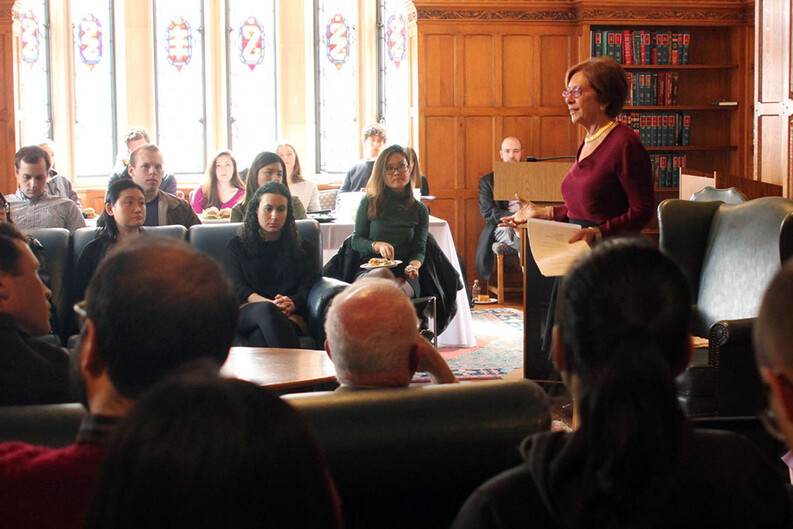Alisa Levin Speaks on Choosing a Firm

On February 21, 2018, Alisa F. Levin, co-principal at Greene-Levin-Snyder LLC, Legal Search Group, gave practical advice on how to think about opportunities in Big Law. The talk was sponsored by the Yale Law School Center for the Study of Corporate Law, Yale Law & Business Society, and the Career Development Office.
Levin first assured students that there is no single "right" decision with respect to firms and practice areas. Rather, she counseled students to look to what is important to them, and to filter firms using those criteria. For example, Levin observed that one student may prefer to approach partners to solicit work, whereas another student may be more comfortable with a centralized system of work assignments. The former student may want to choose a firm with a free market system, whereas the latter student may find a firm with a mandatory rotation program more attractive, especially if the student is undecided between practice areas.
Levin then described some of the "soft" factors that students should keep in mind while evaluating firms. For students who value collegiality, Levin encouraged them to "see how people talk about their colleagues, how they treat and listen to each other," as well as to note how governance and compensation might bear on workplace dynamics. Levin also urged students to pay attention to whether the firms they are considering offer opportunities for regular training, mentorship, and meaningful review. For students who value pro bono service, or diversity and inclusion, Levin observed that they should understand exactly how firms structure their initiatives in each of these areas, and how integrated these initiatives are with core firm operations and culture. Firms also differ in subtler ways, Levin stated, such as whether they value more or less formality in dress and manners, and students should not necessarily ignore their own preferences in this regard, as they should feel comfortable in the environment in which they are spending time.
Beyond these "soft" factors, Levin noted that students interested in specific practice areas would do well to consider how many attorneys at a firm work principally in those areas, as well as the overall reputation of the firm in those areas (as described, e.g., in sources such as Chambers). In addition, a firm's international presence may attract students interested in global opportunities, and those students should take time to study how the firm structures and operates its offices abroad.
Levin concluded her remarks by discussing lateral and upward mobility for attorneys who have worked as associates for several years. Levin stated that the degree of specialization that an associate may seek depends on an individual's goals. For example, a student who wants to become partner at a firm may find it helpful to develop a greater degree of specialization than a student who ultimately wants to be general counsel of a corporation. Levin advised students to spend time developing a relationship with a recruiter who can help them understand the evolving legal marketplace and how to navigate new career opportunities. The talk ended with Levin reiterating that "there are many right decisions," that students should "trust their gut," especially if they are choosing between firms that are relatively equal in reputation, and that, even if students make a mistake, there are ways to fix that mistake.


